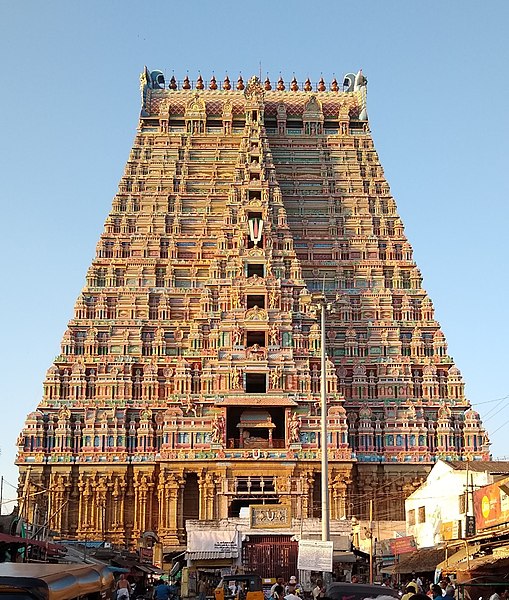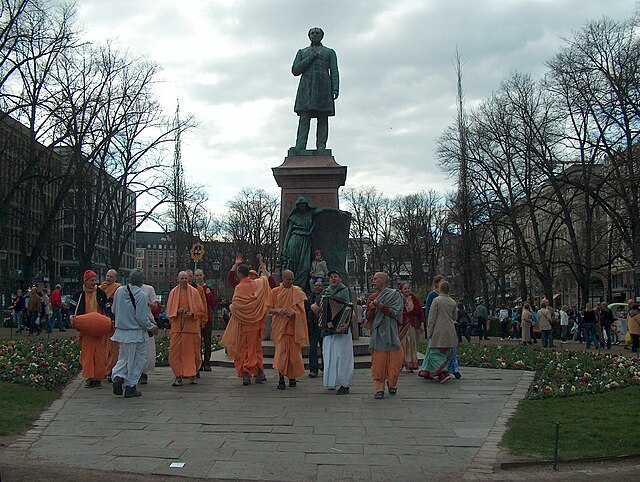Religion in Nepal encompasses a wide diversity of groups and beliefs. Nepal is a secular nation and secularism in Nepal under the Interim constitution is defined as "Religious and cultural freedom along with the protection of religion and culture handed down from time immemorial." That is, "The state government is bound for protecting and fostering Hindu religion while maintaining "Religious" and "Cultural" freedom throughout the nation as fundamental rights.
Pashupatinath Temple, Kathmandu
Boudhanath Stupa, a Buddhist temple in Kathmandu Valley
The Bodhisattva Avalokiteshvara, gilded bronze. Nepal, 16th century A.D.
The Jain temple in Kathmandu, Nepal
Hinduism is an Indian religion or dharma, a religious and universal order by which its followers abide. The word Hindu is an exonym, and while Hinduism has been called the oldest religion in the world, it has also been described as sanātana dharma, a modern usage, based on the belief that its origins lie beyond human history, as revealed in the Hindu texts. Another endonym for Hinduism is Vaidika dharma.
Srirangam Ranganathaswamy Temple dedicated to the Hindu deity Vishnu is said to be worshiped by Ikshvaku and the descendants of (Ikshvaku Vamsam).
Hindus in Ghana celebrating Ganesh Chaturti
Swami Vivekananda was a key figure in introducing Vedanta and Yoga in Europe and the United States, raising interfaith awareness and making Hinduism a world religion.
The Hare Krishna group at the Esplanadi Park in Helsinki, Finland








